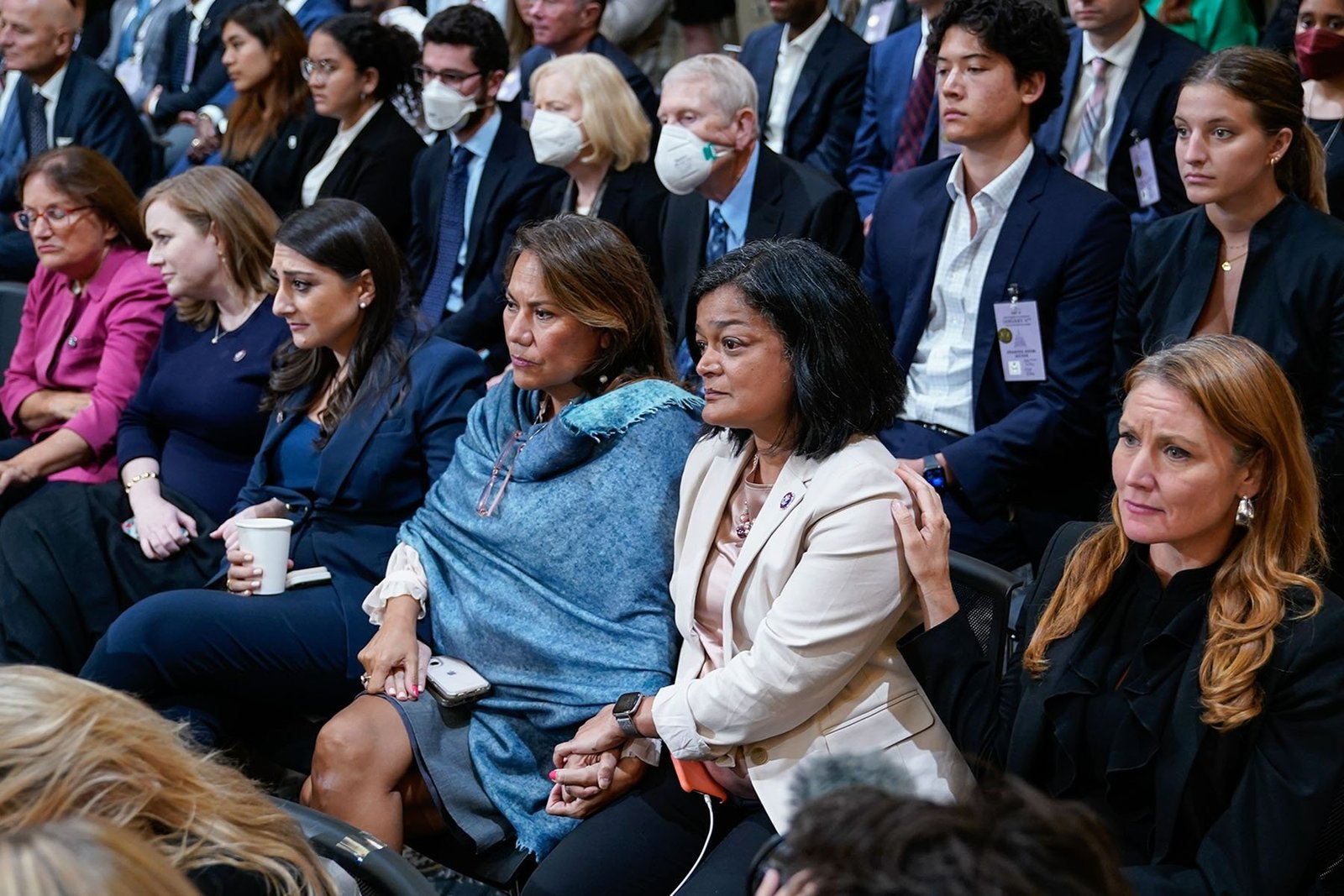Ann McLane Kuster
Women Revisit January 6 Memories as Trump’s Comeback Looms

Rep. Becca Balint of Vermont, who joined the 118th Congress in 2022, reflects on how the January 6, 2021, Capitol riot profoundly impacted her political journey. The event, marked by a violent mob seeking to overturn the 2020 election results, remains a pivotal moment she associates with her swearing-in as Vermont Senate’s first female leader.
Balint recalls the shock of being informed about the attack just as she was about to celebrate her achievement. “The footage shook me to my core,” she explained, highlighting the stark contrast between her expectations and the unfolding chaos.
The riot, deemed domestic terrorism by the FBI, led to the largest criminal investigation in U.S. history, resulting in over 1,500 federal charges. Rioters armed with various weapons clashed with law enforcement, leading to five deaths and extensive injuries among approximately 140 officers. The estimated damage to the Capitol reached $2.9 million.
Former President Donald Trump described the event as a “heinous attack” but later shifted to referring to it as a “day of love.” In 2023, he faced felony charges related to undermining the election results, which were dismissed shortly after winning the 2024 presidential election.
As Congress prepares to certify the results of the upcoming presidential election, Balint and other lawmakers are compelled to confront the implications of Trump’s return to power. “I’m not moving on. It was a dark day in our history,” she asserts, joining a chorus of voices who view January 6 as a critical juncture in American democracy.
The 19th reached out to Congresswomen for insights into the ongoing effects of that day. Seventeen responses—comprising mostly Democrats—revealed a shared concern about the normalization of political violence and a commitment to ensuring historical accuracy in remembrance of the events.
Rep. Suzanne Bonamici of Oregon insists that the imagery of violence from that day can’t be dismissed. “There are videos. There are pictures. There’s a record of this,” she stated, firmly maintaining that the events were real and traumatic.
North Carolina’s Rep. Deborah Ross emphasized the necessity of transparency regarding the attack. “We cannot allow Donald Trump and his cronies to deny what needs to be preserved for history,” she remarked, stressing the importance of educating future generations about the fragility of democracy.
Balint, influenced by family history, discusses the importance of vigilance against threats to rights and norms. “When up is down and black is white, we are headed in a very scary direction,” she said.
Various lawmakers expressed their apprehensions about Trump’s potential glorification of January 6. Rep. LaMonica McIver of New Jersey warned that Trump may attempt to rewrite the narrative surrounding that day, while Rep. Chellie Pingree of Maine highlighted concerns over societal complacency toward past violence.
With even more at stake now, many lawmakers are still grappling with the trauma associated with January 6. For instance, Rep. Ann McLane Kuster of New Hampshire, who experienced the evacuation firsthand, describes the day as haunting. “I’m haunted by the idea that if the police hadn’t pushed back… America might not have woken up to Joe Biden as the lawfully elected president,” she reflected.
Kuster decided to retire this year, citing the ongoing emotional toll and death threats linked to January 6 as contributing factors. “He tried to kill me once. I’m not available for it again,” she stated, emphasizing the gravity of her experiences.


















